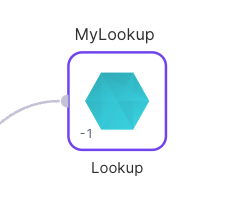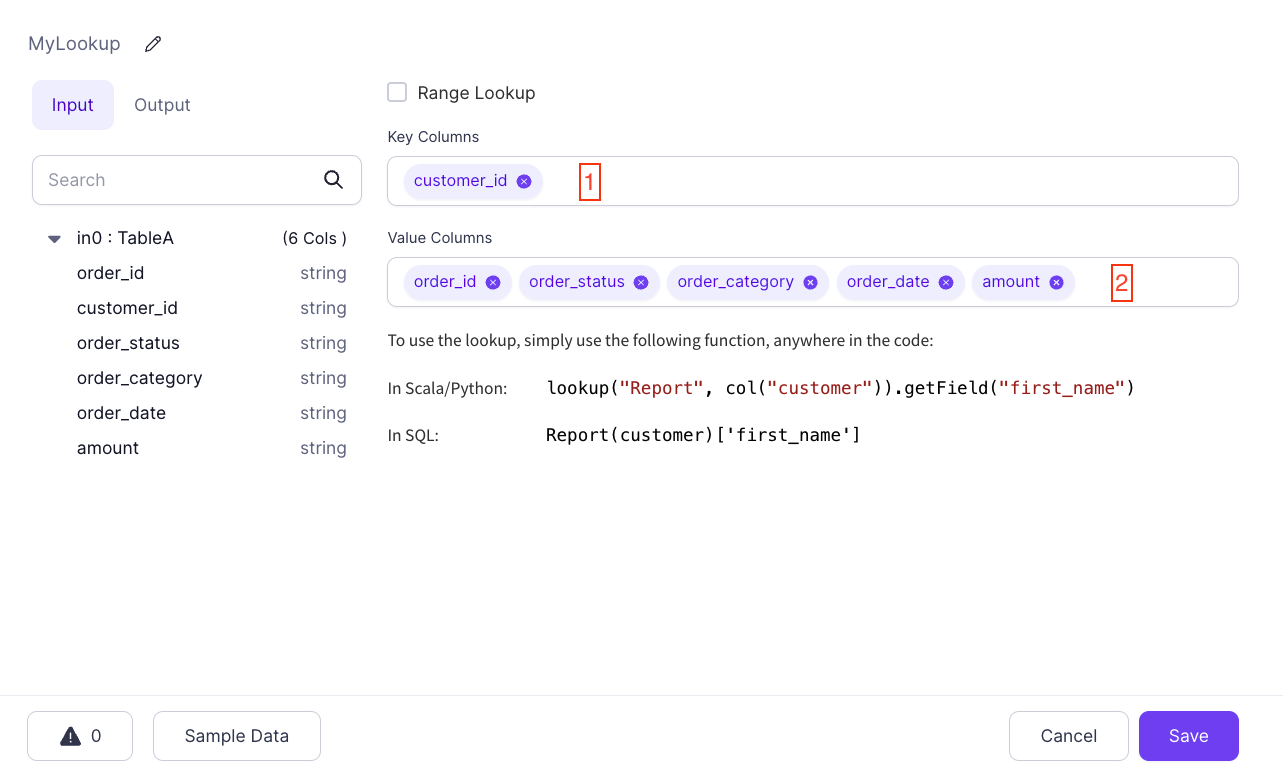Lookup
Lookups are a special kind of Gem that allow you to mark a particular DataFrame as a Broadcast DataFrame. Spark will ensure that this data is available on every computation node so that these lookups can be done without shuffling data. This is useful for looking up values in tables, hence the name.


| Name | Description | |
|---|---|---|
| 1 | Key Columns | Specify one or more columns to use as the lookup key in the source DataFrame |
| 2 | Value Columns | Pick which columns can be referenced wherever this Lookup is used |
Using Lookups
Lookups can be used wherever any other Expression can be used, but usage depends on your Expression language of choice. Lookup references follow a certain pattern:
- Python
- Scala
- SQL
lookup("<LOOKUP NAME>", <KEY COLUMN>).getField(<VALUE COLUMN>)
lookup("<LOOKUP NAME>", <KEY COLUMN>).getField(<VALUE COLUMN>)
<LOOKUP NAME>(<KEY COLUMN>)['<VALUE COLUMN>']
Column-based lookups
So, based on our above MyLookup example we'd use:
- Python
- Scala
- SQL
lookup("MyLookup", col("customer_id")).getField("order_category")
lookup("MyLookup", col("customer_id")).getField("order_category")
MyLookup(customer_id)['order_category']
For example, let's look at a Reformat component:

Here we have a column named category that is set to the value of MyLookup(customer_id)['order_category'] in SQL Expression mode. Whatever the value of order_category is for the key found in the c_id column (compared to the source customer_id key column) will be used for the new column.
Literal lookups
Since any column reference can be used in Lookup expressions, you can use Lookups with static keys:
- Python
- Scala
- SQL
lookup("MyLookup", lit("0000")).getField("order_category")
lookup("MyLookup", lit("0000")).getField("order_category")
MyLookup('0000')['order_category']
In this case, the expression evaluates to the value of order_category where customer_id is 0000. This can be useful in situations when you want to have a table of predefined keys and their values available in Expressions.